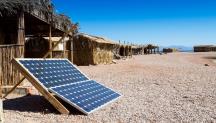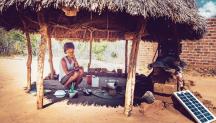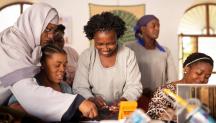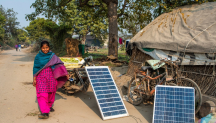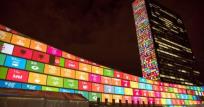
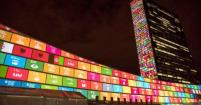
Sustainable Energy for All and SDG 7 in Focus
Newsletter
World leaders gathered last weekend at the United Nations General Assembly and formally adopted new development goals as successors to the Millennium Development Goals – the Sustainable Development Goals (SDGs). These 17 ambitious global goals will set the course for the world’s development over the next 15 years. They broadly cover poverty, health, gender equality, sustainable development, economic growth, environment, climate, justice and other conditions necessary for individual, collective and global well-being. Renewable energy will play a role in achieving many of these goals.
SDG 7 in particular seeks to ensure access to affordable, reliable, sustainable, and modern energy for all. Specifically, it sets out to ensure universal access to affordable, reliable, and modern energy services, increase substantially the share of renewable energy in the global energy mix and double the global rate of improvement in energy efficiency by 2030.
To mobilise efforts to achieve sustainable energy and the newly adopted SDG 7, the UN Sustainable Energy for All (SE4ALL) global initiative was launched and IRENA serves as the initiative’s Renewable Energy Hub. In this role, IRENA has developed the Global Renewable Energy Roadmap (REmap 2030), which explores pathways to double the share of renewables in the global energy mix.
The key finding underpinning the REmap programme, across IRENA’s cross continental, regional and country-specific analyses, is that doubling the share of renewables worldwide by 2030 is possible. The global share of renewable energy in terms of total final energy consumption in 2014 stood at 18 per cent. According to IRENA’s analysis it can exceed 30 per cent by 2030 with the renewable energy technology options identified in the study. Given rapid technological progress, combined with falling costs, a better understanding of financial risk and a growing appreciation of wider benefits, renewable energy has become an increasingly viable and cost-effective option, and the business case for renewable energy investment today is compelling.
“The potential for greater renewable energy shares as per REmap exists in all countries. If the political will and enabling environment for investment is there, there are enough resources around the world for the transition to a low-carbon economy based on sustainable energy to be made today.” – Adnan Z. Amin, IRENA Director-General
IRENA is also playing a role in the development of a statistical framework for reviewing progress made towards realising SDG 7 and its targets, which will receive final approval by the UN Statistical Commission next March.
Forty countries accounting for 80 per cent of global energy use are now engaged in REmap. Renewable energy is featured in national energy strategies and climate action plans of at least 164 countries around the world, up almost four-fold from 43 countries a decade ago and 131 of these countries are developing and emerging economies.
